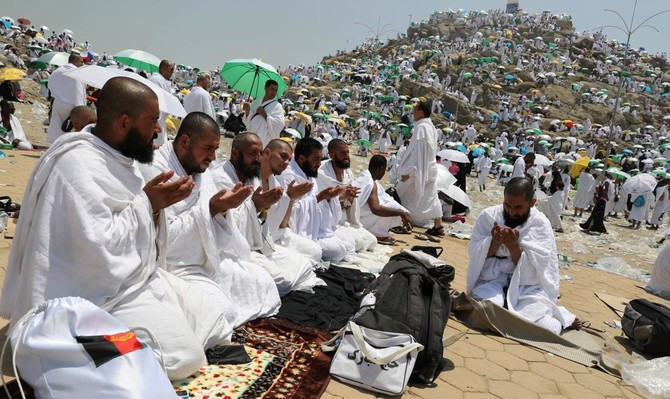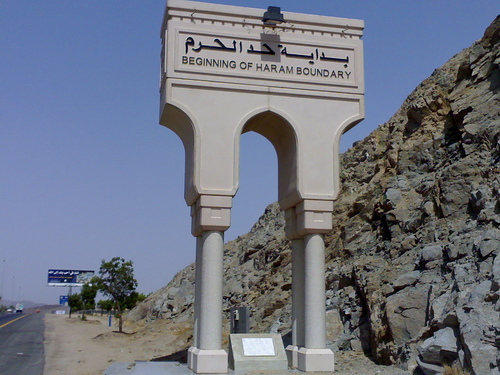Current Section: model

Lesson Meaning and Virtues of Hajj
The Meaning of Hajj
Hajj is visiting the Sacred Mosque in Makkah, intending to perform the rites of the pilgrimage. It involves a series of sayings and activities taught by the Prophet ﷺ which include, among other things, assuming the condition of ritual purity (Ihram), walking seven times around the Kaaba, walking seven times between the hills of Safa and Marwa, staying in Arafah, and throwing pebbles in Mina, etc. Indeed, Hajj provides servants with huge benefits, including the declaration of the oneness of Allah (Tawheed) and immense forgiveness for the pilgrims. Also, Muslims get to know one another and learn about the rulings of Islam, etc.
The Ruling of Hajj
Hajj is the fifth pillar of Islam; every able Muslim man and woman must perform it once in a lifetime. The Quran says: (And [due] to Allah from the people is a pilgrimage to the House - for whoever is able to find thereto a way. But whoever disbelieves [i.e., refuses] - then indeed, Allah is free from need of the worlds.) [Al-Imran:97]
Abu Huraira (may Allah be pleased with him) reported: "Allah's Messenger ﷺ addressed us and said: «O people, Allah has made Hajj obligatory for you; so perform Hajj.» A person said: "O Messenger of Allah, (is it to be performed) every year? He (the Prophet) kept quiet, and he repeated (these words) thrice, after that Allah's Messenger ﷺ said: «If I were to say" Yes," it would become obligatory (for you to perform it every year) and you would not be able to do it.» (Muslim, 1337)
The Muslim must perform the Hajj whenever he is able to do so.
Time Zone
Hajj has time and place zones:
Time Zones
Hajj may only be performed in specific months, and it is forbidden to perform it except in these particular months: Shawwal, Dhu al-Qa'dah, and Dhu al-Hijjah. Therefore, the rites of Hajj are concentrated between the eighth and thirteenth day of Dhu al-Hijjah, the twelfth month of the lunar Islamic Calendar.
One shouldn't pass the Miqat unless he/she is in the state of Ihram. These are boundaries that a pilgrim is not permitted to pass to Makkah without being in Ihram. The Miqat for the people of Medina Dhul-Hulaifah. For the people of Sham (modern-day Syria, Jordan), it is al-Juhfah. For the people of Najd, it is Qarn al-Manazil. For the people of Yemen, it is Yalamlam and Dhat 'Irq for the people of Iraq. These are the place zones for all those living in those places and, besides them, for those who come through those places to perform Hajj and Umrah. The people of knowledge and modern maps can be consulted to learn about them.

The conditions for Hajj to be obligatory for someone include :
The first condition: Islam
Hajj is an obligatory act for a Muslim. However, a disbeliever is not obliged to perform Hajj as it would be invalid because Islam is a condition for the validity of acts of worship.
The second condition: Sanity
An insane person may not perform Hajj as it is not valid for him because sanity is required for any action to be valid and obligatory. Ali ibn Abi Talib reported the Prophet ﷺ saying: «The pen is lifted from three people: a sleeping person until he awakens, a child until he becomes an adult, and an insane person until he regains his sanity.» (Abu Dawud, 4403)
The third condition: Puberty
Hajj is not obligatory for a child because the Prophet ﷺ said: «The pen is lifted from three people: a sleeping person until he awakens, a child until he becomes an adult, and an insane person until he regains his sanity.» (Abu Dawud, 4403)
If a child does perform Hajj, his Hajj is valid, but he must perform the Hajj (the obligatory one) after he reaches puberty. The Prophet ﷺ said: «If a young child performs Hajj, then it will be considered as voluntary until he reaches puberty. When he does reach puberty, then he must make Hajj again.» (Mustadrak Al-Hakim, 1769)
The fourth condition: Freedom
Hajj is not obligatory for a person who is owned (as a slave) as he is busy serving his master. If he was to perform the Hajj with the permission of his master, then it is valid, but it does not free him of the obligation of the obligatory Hajj, due to what was reported by Ibn Abbas (may Allah be pleased with both of them) who said: The Messenger of Allah ﷺ said: «Any slave that performs Hajj and then after that, he is freed, must perform another Hajj.» (Sunan Al-Kubra 8613)
The fifth condition: The ability
Hajj is required only for one who has the ability and is physically capable of traveling to perform the Hajj and has provisions, and his riding beast can cover the journey to get to Hajj. Including in a woman's ability is the presence of a mahram (guardian) that will accompany her in the Hajj journey because it is not permissible for her to travel to Hajj or otherwise without a mahram.
Allah says, (And [due] to Allah from the people is a pilgrimage to the House - for whoever can find to it a way.) [Al-Imran:97]
Whoever can in terms of his wealth, but his body cannot due to a terminal illness or old age, then he must delegate someone else. Fadl Ibn Abbas (may Allah be pleased with him) reported on the authority of the Prophet ﷺ who said: A man asked the Prophet: "O Allah's Messenger, the obligation of Hajj enjoined by Allah on His devotees has become due on my father and he is old and weak, and he cannot sit firm on his mount; may I perform Hajj on his behalf?" The Prophet replied: «Yes, you may.» (Musnad Ahmad, 1912)
The different Scenarios of Muslim’s ability to perform Hajj:
The sixth condition: the presence of a mahram with the woman while traveling
For a woman to perform Hajj, she has to be with a mahram (male guardian), for a woman may not perform Hajj without one. A mahram can be her husband or a member of the family with whom marriage would be considered forbidden, such as her father, grandfather, son, grandson, brothers, nephews, and uncles.
If a woman performs Hajj without a mahram in such a way that she is not exposed to any danger, her Hajj is valid, but she is sinful for doing so.
Virtues of Hajj
Performing Hajj has many virtues and benefits, including:
1- It is one of the best deeds
Prophet ﷺ was once asked, “What is the best deed?” He replied: «Belief in Allah and His Messenger.» He was then asked, “What next?” He said: «Fighting in the way of Allah,» He was further asked: “What next?’ He replied: «Hajj that is performed correctly and is accepted by Allah.» (Al-Bukhari, 1447, Muslim, 83)
2. A great time for obtaining forgiveness
The Prophet ﷺ said: «Whoever performs the pilgrimage for Allah’s sake, avoids intimate relations [with his wife], does not fight with anyone nor abuse anyone, he will return home free from sins like the day his mother gave birth to him.» (Al-Bukhari, 1521, Muslim, 1350) I.e., he will return free of sin like the day he was born.
3. A great opportunity to be saved from the hellfire
The Prophet ﷺ said: «There is no day on which Allah frees people from the Fire as He does on the Day of Arafah.» (Muslim, 1348)
4. The reward for it is Paradise
The Prophet ﷺ said: «There is no reward for a Hajj that is performed correctly and is accepted by Allah except Paradise.» (Al-Bukhari, 1773, Muslim, 1349) These and other virtues will be enjoyed only by those whose intention was good, truthful, and pure, while their following in the footsteps of the Messenger ﷺ is correct.



